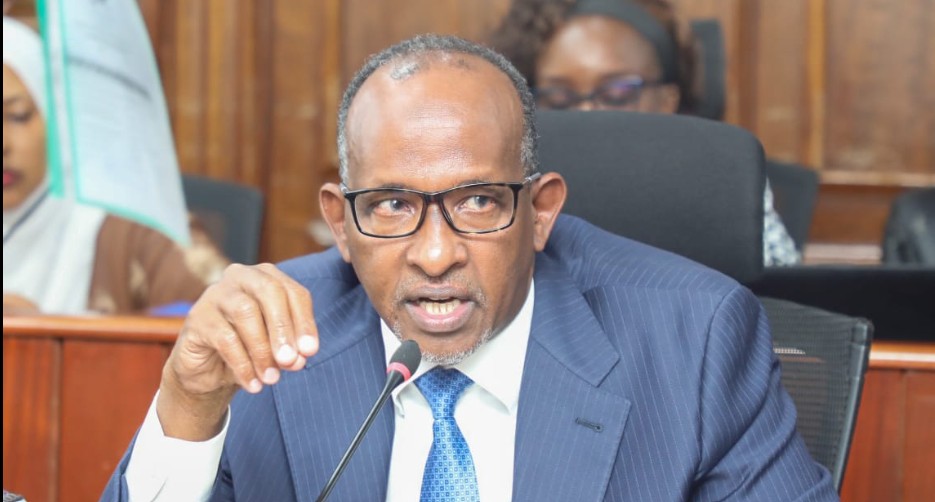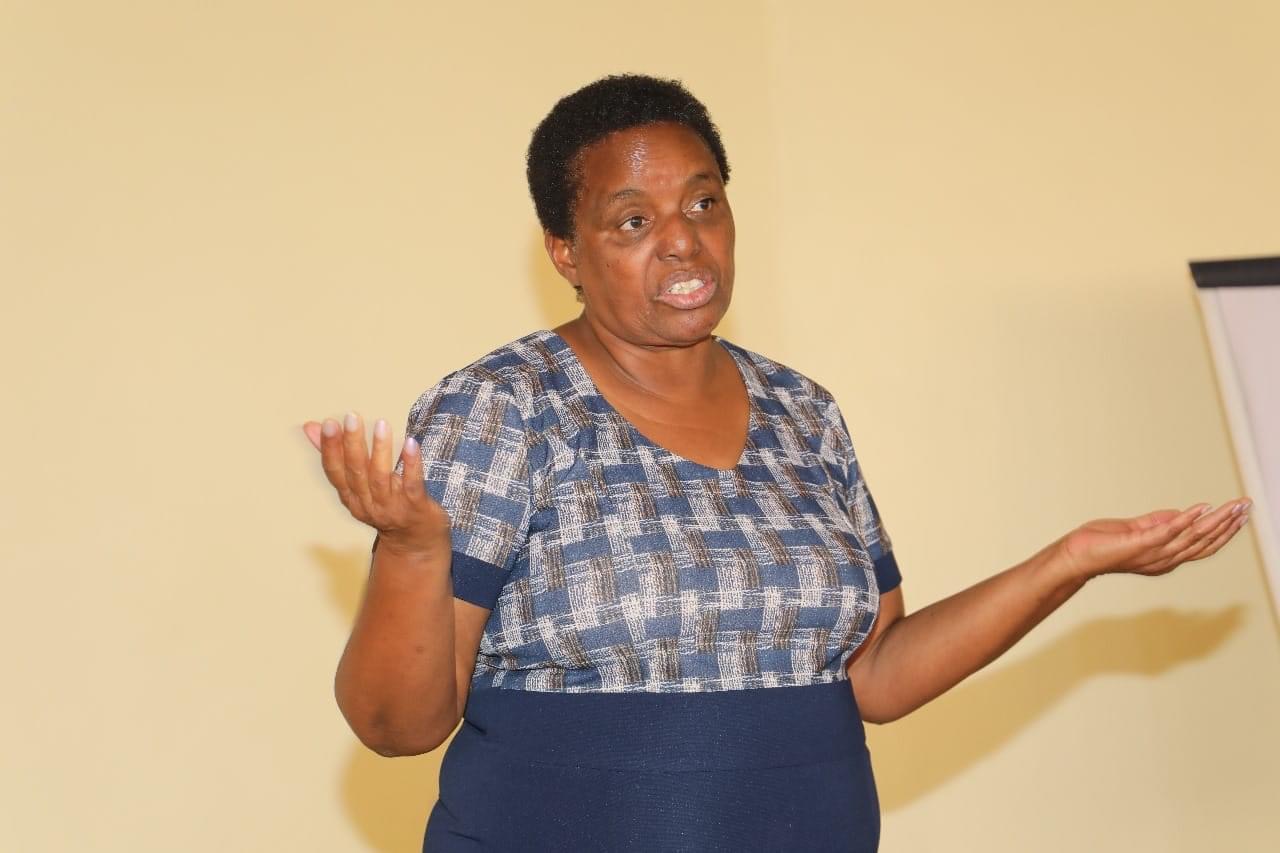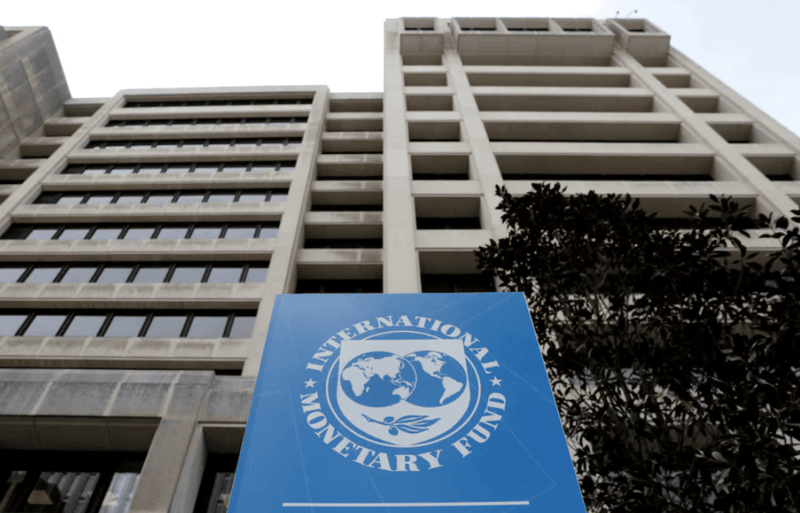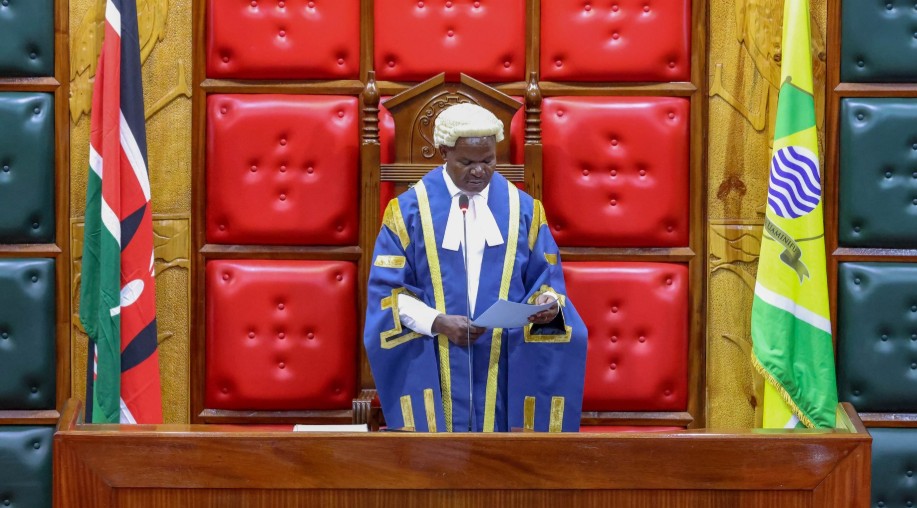Duale blames corruption for weak tobacco law enforcement as Kenya rolls out stricter warning labels

Duale said enforcement efforts have repeatedly been undermined by corrupt individuals who frustrate government initiatives aimed at safeguarding public health.
Corruption remains the biggest hurdle to enforcing Kenya’s tobacco control laws, Health Cabinet Secretary Aden Duale has told Parliament, warning that efforts to curb smoking will fail if dishonest practices continue to sabotage implementation.
Appearing before the National Assembly Committee on Delegated Legislation on Wednesday to discuss the 2025 Graphic Warning Regulations for Tobacco Products, Duale said enforcement efforts have repeatedly been undermined by corrupt individuals who frustrate government initiatives aimed at safeguarding public health.
More To Read
- Health CS Aden Duale issues key recommendations to tackle 2015 Thange oil spill crisis
- China flagged as key source of tobacco imports as Kenya imposes ban to curb youth addiction
- Committee proposes establishment of national deceased organ donation programme
- CS Duale orders security audits at all referral hospitals after KNH patient murder
- Kenya vaccinates over 21 million children against typhoid, measles
- Ministry of Health cracks down on bed sharing in public hospitals, labels it fraud
“There’s a member who asked, what is the weakest link? The weakest link in this thing is corruption,” Duale told MPs, urging them to support the ministry in closing enforcement loopholes that render tobacco laws ineffective.
He cautioned that while Kenya has a strong legal framework, the main challenge lies in ensuring the laws are applied consistently and free from interference by corrupt networks.
“Even if we pass strong laws, they will not work unless enforcement is clean,” Duale added.
Drug use among youths
The Health CS also expressed concern over rising drug use among the youth, linking it to weak parenting and a decline in moral values.
“In terms of parenting, there’s serious responsibility. If you take these drugs, your child will take them. If you pray, your child will learn how to pray,” he said.
Duale stressed that parenting, religious guidance, and personal values must work hand in hand with government efforts.
“When we take our children to Sunday school or to the madrasah, this cannot take the role of parenting. What we lost as a country is that the role of parenting has become very deficient. Parents must take the tax, whether it is in terms of these drugs,” he added.
His remarks came as Parliament reviewed new tobacco control regulations introduced by the Ministry of Health in June 2025.
Graphic health warnings
The regulations mandate that all tobacco products carry a new series of graphic health warnings—featuring images and pictograms that highlight the serious health risks of tobacco use—starting nine months after the rules are published.
According to the ministry, the warnings are part of a broader strategy to protect the public, especially the youth, and reduce exposure to second-hand smoke.
“Tobacco use continues to pose a significant public health threat, and we must all play our part in reducing its harmful impact. The new GHWs are an important step in our collective effort to protect lives and promote a healthier, smoke-free Kenya,” it said.
The public has been encouraged to report violations and support campaigns for smoke-free environments.
Meanwhile, tobacco manufacturers, sellers, importers, and distributors have been ordered to comply fully or face penalties under the Tobacco Control Act.
The new regulations also align with Kenya’s international obligations under the World Health Organisation Framework Convention on Tobacco Control, which urges countries to adopt stricter measures to cut tobacco consumption.
Kenya first introduced text-based warnings in 2008, followed by graphic warnings in 2016. The current set marks the third round of warning updates, aimed at further strengthening the visual impact of anti-smoking messaging.
Top Stories Today
Reader Comments
Trending










































